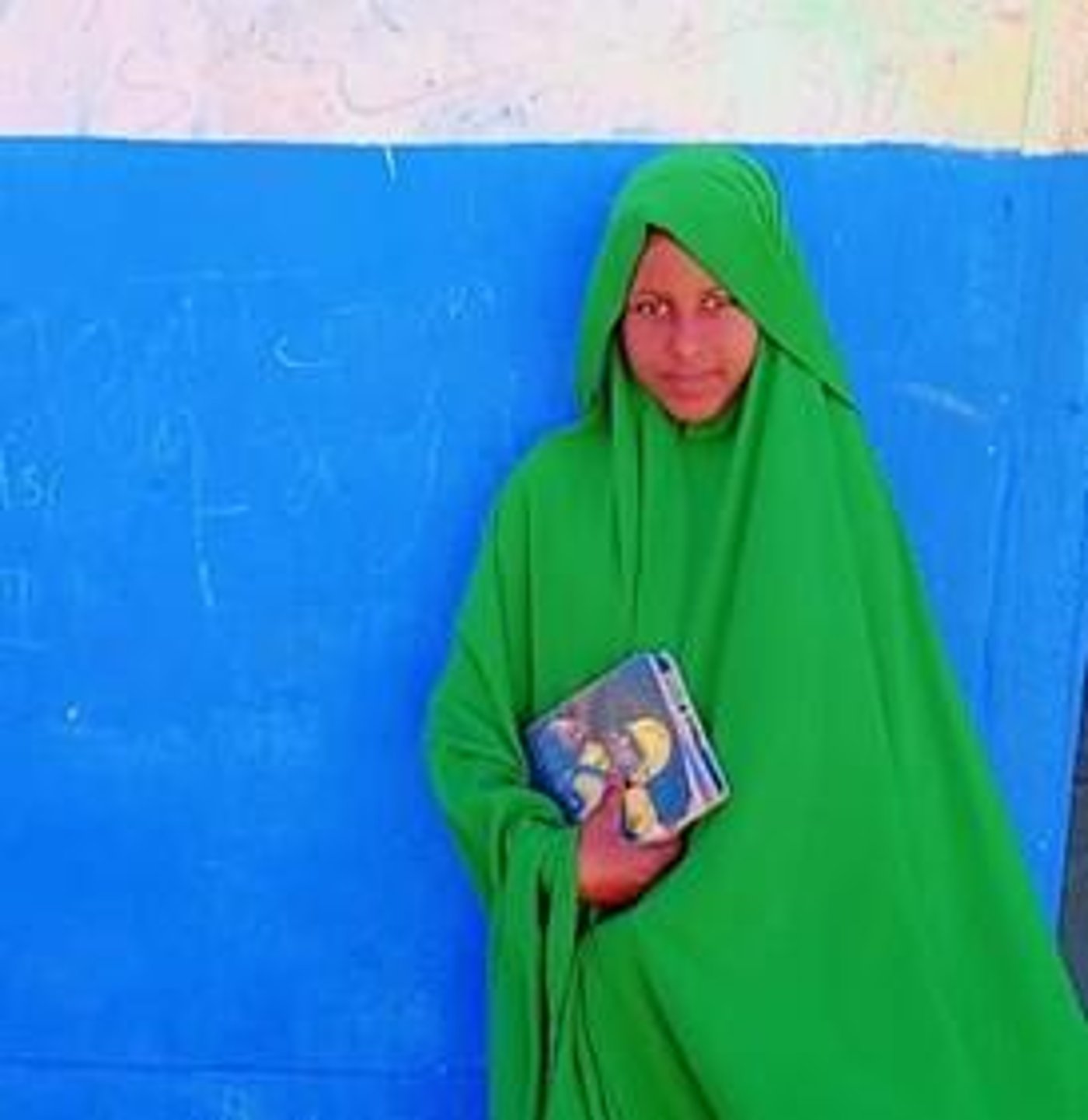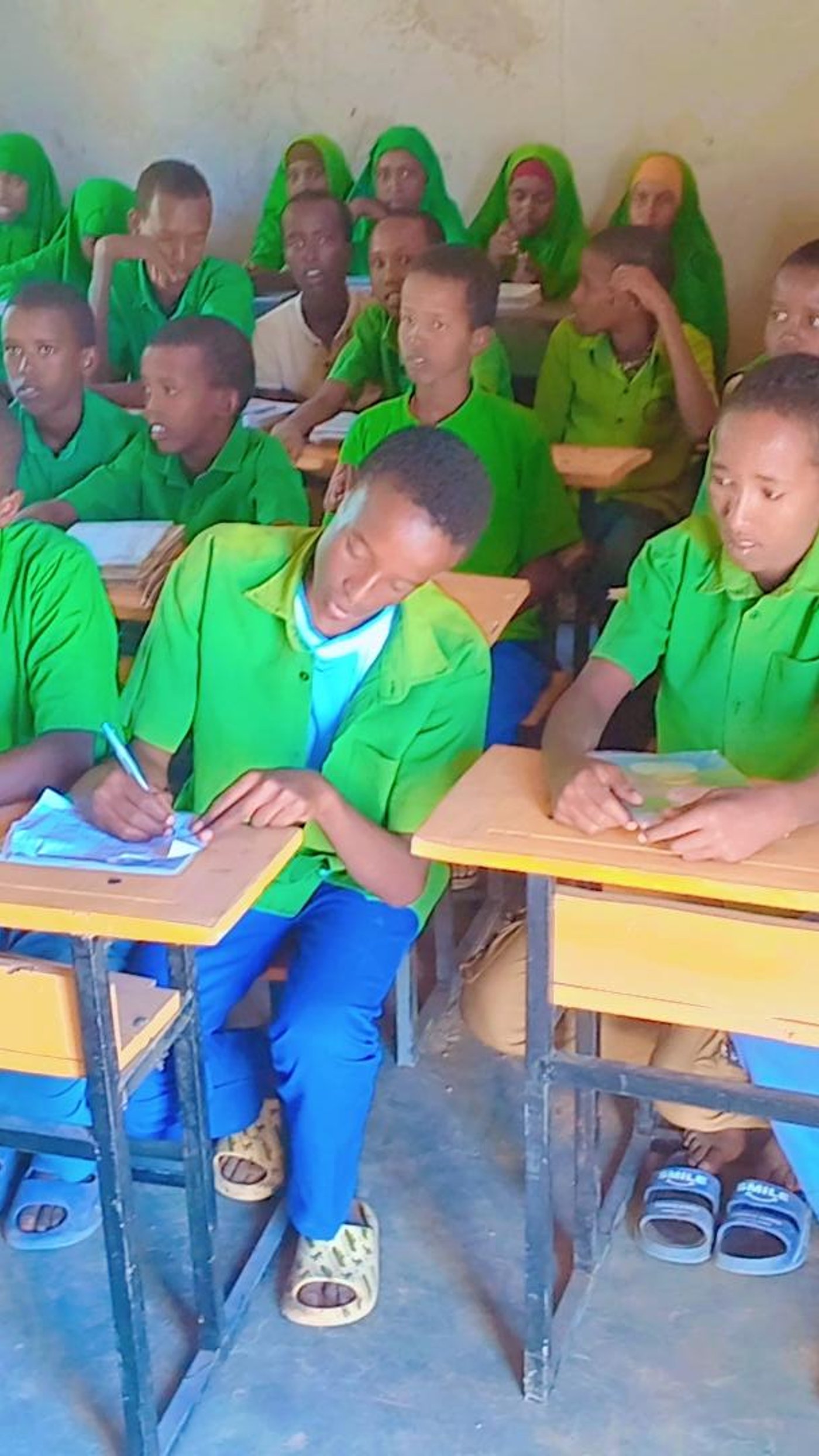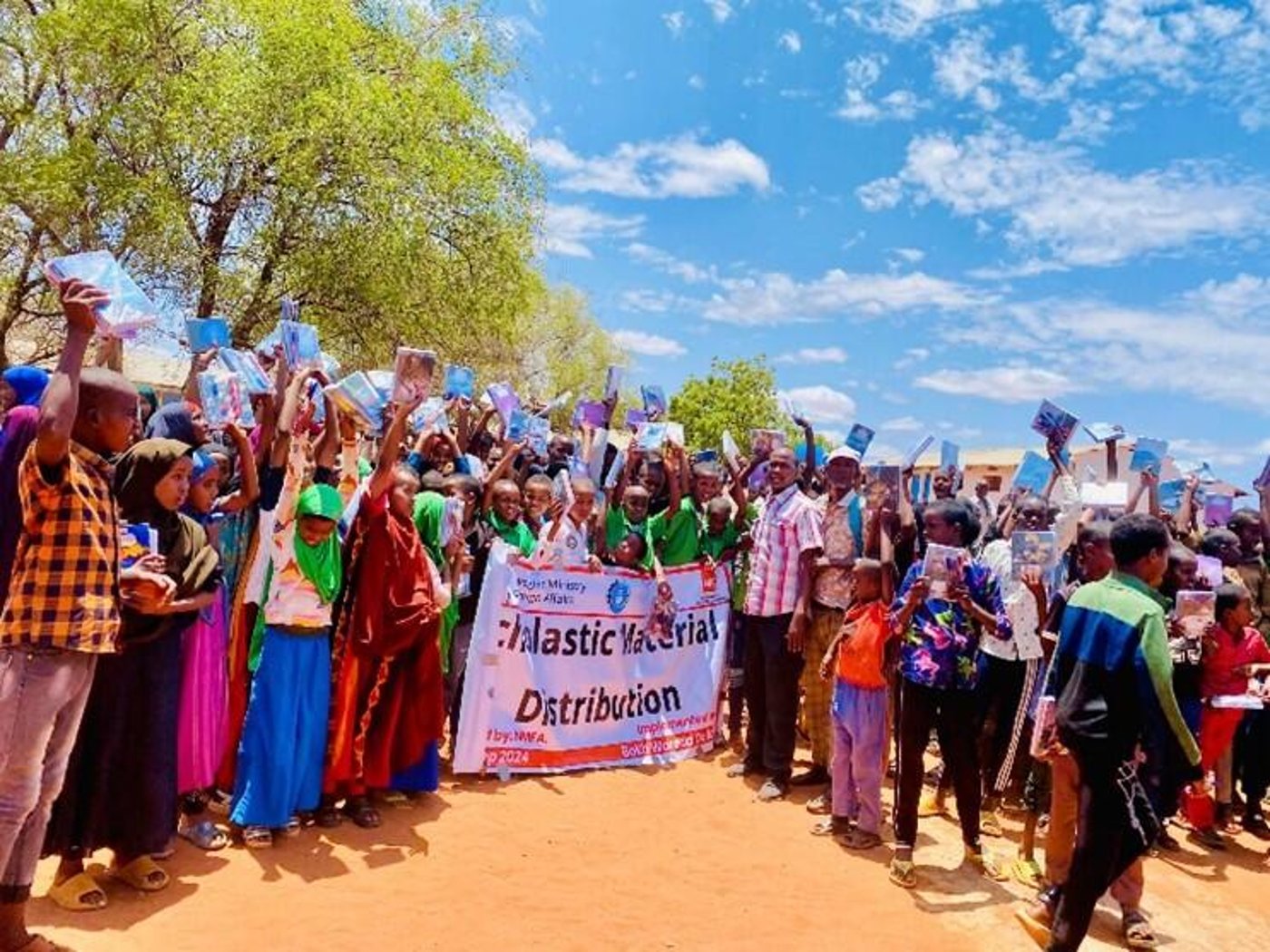Amina’s story: progress with scholastic materials
Twelve-year-old Amina, a Somali refugee from Las Anod, is one of many children rebuilding their education after displacement. After fleeing violence with her family and settling in Mirkan refugee camp, she faced months of uncertainty. Despite her passion for learning and history of academic excellence, the lack of basic school supplies like books, pens, even a desk, made it difficult to continue.
That changed when Amina received a set of scholastic materials from the Norwegian Refugee Council (NRC), with support from the Norwegian Ministry of Foreign Affairs. Equipped with notebooks, pens and pencils, she was able to return to school and re-engage with her studies.
“I felt like I could start again,” she says. “It was like I had a chance to study properly.”
Since then, Amina has been attending school regularly and doing well in her classes. She hopes to continue her education and one day become a doctor.
“I want to make sure other children don’t lose their chance to study,” she says.

Rebuilding classrooms after crisis
In Chereti district’s Jarati Bay and Weeb Primary Schools, the situation was equally dire, though for a different reason: floods.
Seasonal flooding forced displaced families to seek refuge in classrooms, often burning desks for firewood or damaging already fragile structures. When classes resumed, children returned to bare classrooms, forced to sit on the floor or squeeze four to a desk designed for three. Education, once again, was compromised.
"When I saw some of my students sitting on the ground, I felt very disappointed,” says Mohamed Abdirashid Nor, school principal “During break time, they had no proper place to keep their books, and they would be lost or damaged. Students would even fight over space, and we were facing so many challenges.”
In response, NRC with support from the Swedish International Development Cooperation Agency (Sida), delivered 60 combined desks to both schools, providing comfortable seating for 180 students.
The result was transformative.
Teachers noted increased attendance and classroom participation within weeks of the desk delivery. For many children, simply having a place to sit gave them a reason to show up every day.
“Before the new desks arrived, it was very challenging,” says Hussein Bule, a teacher at Jarati Bay. “[Students] were uncomfortable because they had to sit on the floor. Many of them struggled to write properly and it affected their focus. Now, with the new desks, they are more attentive, motivated, and eager to learn. Teaching has also become easier and more effective.”

The impact of teacher training
While improved materials and infrastructure are essential, effective teaching is equally critical. At Weeb Primary School, decades of underinvestment meant that, despite their dedication, teachers often relied on learning by repetition and lessons that failed to engage students.
A targeted multi-sectoral needs assessment highlighted this gap. In response, and with support from Sida, NRC launched a teacher training programme as part of its broader education initiative. Educators received practical training in interactive, student-centred teaching methods. For the first time in years, teaching wasn’t just about content, but also about connection.
“I’ve taught for 16 years, but this training was a turning point,” says Mohamed Ali, a science teacher at Weeb. “Now, my students think critically, ask questions, and work together. Teaching has become easier for me. I can see how much better they are.”
“We see students collaborating, teachers thriving, and classrooms buzzing with energy,” says School Director Mohamed Muse Salad.
“Learning used to be boring. Now, it’s fun. We help each other, and we’re not afraid to speak,” shares Ismahan, a class 8 student.
A path forward
Despite these positive developments, significant challenges remain. Many schools still lack adequate water and sanitation facilities, an ongoing displacement continues to disrupt education. Yet, the experiences of Amina, Mohamed, and Ismahan demonstrate how targeted support, even when modest, can spark meaningful change.
NRC continues to work with community leaders, local education authorities, and international donors to expand these initiatives and ensure no child is left behind, no matter where they live or how far they’ve had to flee.
Sign up to our newsletter to read more stories from around the world.


